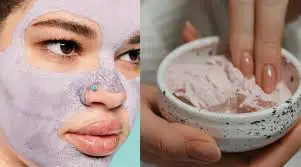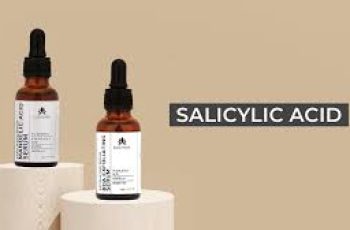
Do I Really Need to Use a Face Mask? Experts Weigh In
Skincare routines can feel overwhelming. Between cleansers, toners, serums, moisturizers, and exfoliators, it’s easy to overlook one underrated but powerful step: the face mask.
So the big question is: Do you really need to use a face mask?
The answer, in short, is yes—but let’s break down why this step is more essential than you might think, and how to make the most of it based on your skin’s needs.
What Does a Face Mask Actually Do?
Face masks are not just a trend or a pampering treat.
They are high-performance treatments designed to deliver concentrated ingredients deep into the skin, offering results that go beyond your daily skincare products.
They’re formulated to:
Unclog pores, Absorb excess oil, Hydrate dry or flaky skin, Soothe irritation or inflammation, Brighten dull complexions, Boost the effects of other skincare products
In short, masks are a targeted treatment that can help balance, restore, and renew your skin.
Top Benefits of Using a Face Mask
Let’s take a closer look at the core benefits of adding a face mask to your regular skincare routine.
1. Deep Cleansing of Pores
Over time, your skin accumulates dirt, oil, sweat, and pollution. A good face mask helps draw out impurities that your daily cleanser might miss.
Especially in congested skin, clogged pores lead to acne, blackheads, and dull texture. Clay and charcoal masks work by absorbing debris from deep within your pores, leaving your skin clear and fresh.
2. Removes Dead Skin Cells
Many face masks contain exfoliating ingredients—either physical scrubs or chemical exfoliants like AHAs or enzymes—that slough away dead skin cells.
Exfoliating masks help reveal smoother, more radiant skin. They also prepare your face to better absorb serums and moisturizers that follow.
3. Balances Oil Production
If you have oily or combination skin, a mask can help regulate oil without stripping your skin dry. Ingredients like bentonite clay or sulfur target sebum, shrinking pores and minimizing shine.
Regular masking helps maintain a matte finish while keeping your skin’s natural moisture barrier intact.
4. Hydrates and Soothes Dry Skin
Masks don’t just remove impurities—they can also infuse the skin with moisture.
If your skin feels tight, rough, or sensitive, a hydrating mask with ingredients like hyaluronic acid, aloe vera, or ceramides can be a game-changer.
These masks help restore elasticity and improve skin softness, making them ideal during cold months or post-sun exposure.
5. Promotes Relaxation and Mental Well-being
Masking can also be an act of self-care. Taking 10–20 minutes to unwind, listen to music, sip tea, or meditate while wearing a mask helps reduce stress.
Some formulas even include aromatherapeutic essential oils, like lavender or chamomile, enhancing the calming effect.
Skincare isn’t just about appearance—it’s about wellness. Face masks help you achieve both.
6. Brightens and Revitalizes Dull Complexions
Exposure to pollution, fatigue, and stress can make your skin appear dull or uneven. Masks with ingredients like vitamin C, niacinamide, or fruit enzymes can help revive your glow.
They work by boosting circulation, lightly exfoliating, and enhancing radiance—perfect before events or as part of your weekly reset.
7. Fights Signs of Aging
Face masks are also powerful tools in your anti-aging routine. With regular use, they can help firm the skin, smooth fine lines, and reduce pigmentation.
Look for masks that include:
Peptides (to promote collagen), Retinoids (for cell turnover), Antioxidants (to fight free radicals), CoQ10 and vitamin E (to support elasticity)
These ingredients penetrate deeper when delivered via a mask format, improving skin texture and youthfulness over time.
Why Face Masks Boost the Rest of Your Routine
Another underrated benefit of masking is how it amplifies the effects of other skincare products.
When your pores are clear and dead skin cells are removed, your serums and moisturizers can penetrate more effectively. That means:
Better hydration, More visible results, Reduced product waste
In essence, a mask acts like a primer for your skin—removing barriers and prepping it for optimal absorption.
How Often Should You Use a Face Mask?
This depends on your skin type and the kind of mask you’re using.
Normal/combination skin: 1–2 times per week
Oily/acne-prone skin: 2–3 times per week with clay or charcoal masks
Dry/sensitive skin: 1–2 times per week with hydrating or soothing masks
If you’re using multi-masking—applying different masks to different areas of your face—you can customize it even more.
Listen to your skin and adjust your routine based on how it feels. Over-masking can lead to dryness or sensitivity, so start slow and build consistency.
Why Activated Charcoal Is a Star Ingredient
There are a lot of fun-sounding face mask ingredients out there—think papaya, kiwi, matcha, and even gold. While they may smell great, not all of them actually benefit your skin.
That’s why dermatologists and skincare experts often recommend activated charcoal as a go-to ingredient—because it works.
What Does Activated Charcoal Do?
Activated charcoal is a form of carbon that’s been treated to become extremely porous, giving it the ability to adsorb toxins, bacteria, and oil like a sponge.
Here’s why it’s a top choice for skincare:
Deeply cleanses pores, Absorbs sebum and impurities, Reduces breakouts and blackheads, Minimizes the appearance of pores, Calms inflamed or acne-prone skin
Whether your goal is to control shine, reduce blemishes, or detoxify your skin, a charcoal mask delivers results fast—without harsh stripping or drying.
When Is the Best Time to Use a Face Mask?
Face masks can be used morning or evening, but each time of day offers different benefits.
Morning: Use brightening or firming masks to prep skin for makeup and reduce puffiness.
Evening: Detoxifying or hydrating masks are great at night, allowing your skin to recover as you sleep.
Try masking after exfoliating for better absorption, and always follow up with toner, serum, and moisturizer.
Common Myths About Face Masks
Let’s clear up some confusion:
❌ Myth: Face masks are only for pampering
✔️ Truth: They provide serious skin benefits with concentrated active ingredients.
❌ Myth: All face masks need to be washed off
✔️ Truth: Sheet masks and overnight masks are meant to stay on and absorb.
❌ Myth: Face masks are only for women
✔️ Truth: Skin is skin—regardless of gender. Men benefit from masks just as much.
Final Thoughts: Are Face Masks Worth It?
In one word: Absolutely.
Face masks are a powerful addition to any skincare routine. Whether your skin is oily, dry, sensitive, or acne-prone, there’s a mask out there that can help you meet your skincare goals.
From instant glow-ups to long-term anti-aging support, masking isn’t just about looking good—it’s about improving the overall health of your skin.
It’s a small step that makes a big impact—and sometimes, 15 minutes is all it takes to look and feel refreshed.
Need Help Choosing the Right Mask?
If you’re unsure which type of mask is right for your skin, here’s a quick breakdown:
Skin Type Best Mask Type Star Ingredients
Oily/Acne-Prone Clay, charcoal, sulfur masks Activated charcoal, tea tree, kaolin clay
Dry/Dehydrated Cream, gel, or sheet masks Hyaluronic acid, aloe vera, ceramides
Sensitive Calming and fragrance-free masks Oat extract, calendula, chamomile
Dull/Uneven Tone Brightening exfoliating masks Vitamin C, niacinamide, glycolic acid
Mature Firming or anti-aging masks Retinol, peptides, antioxidants
Ready to Upgrade Your Routine?
Your skincare doesn’t need to be complicated—but it should be intentional.
Incorporating a face mask just once or twice a week can make your other products work harder and leave your skin noticeably clearer, smoother, and more radiant.
Looking for a great place to start? Try an activated charcoal mask for detoxifying results that you’ll see (and feel) fast.
And as always, if you’re trying a new product, do a patch test first. Great skin starts with smart choices.


